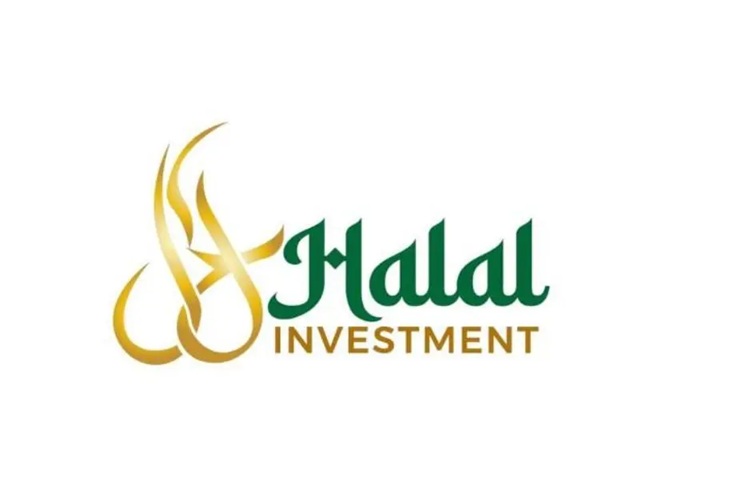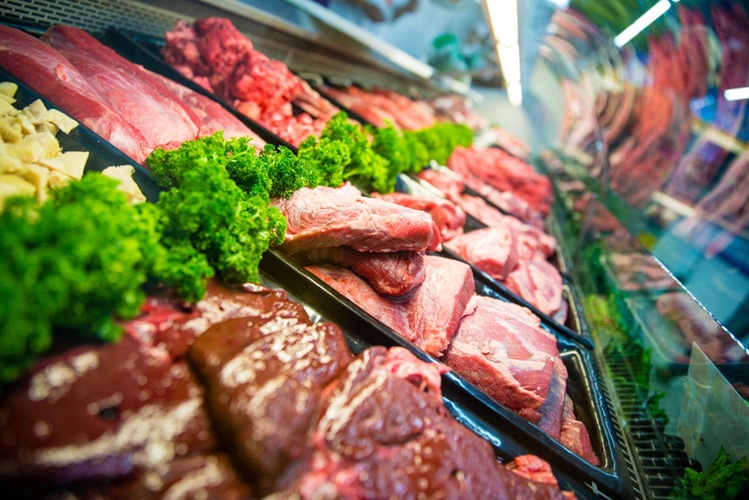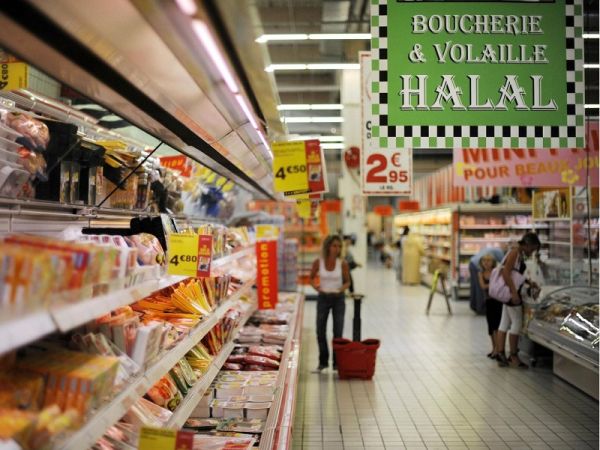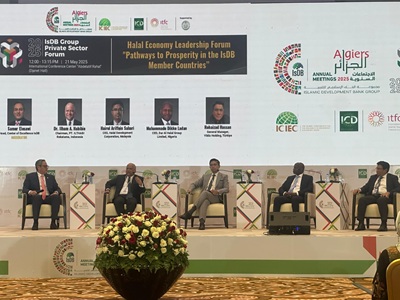Maeeshat News Network | Mumbai
The global halal industry, rooted in Islamic principles of permissible (halal) products and services, has emerged as one of the fastest-growing sectors in the world economy. Encompassing food, beverages, pharmaceuticals, cosmetics, tourism, and finance, the industry caters to the needs of over 1.9 billion Muslims and a growing number of non-Muslim consumers who value halal products for their ethical, hygienic, and sustainable attributes. Valued at USD 7.7 trillion in 2025, the halal market is projected to reach USD 10 trillion by 2030, driven by a rising Muslim population, increasing purchasing power, and technological innovations.
The Scope and Growth of the Halal Industry
The term “halal,” meaning “permissible” in Arabic, governs products and services compliant with Islamic Sharia law, covering everything from food preparation to financial transactions. The halal food and beverage sector dominates, accounting for approximately 35% of the total market, with a projected value of USD 4,569.69 billion by 2030 at a compound annual growth rate (CAGR) of 9.56%. Other sectors, including pharmaceuticals (USD 132 billion by 2022), cosmetics, and tourism, are also expanding rapidly, driven by consumer demand for ethical and sustainable options.
The industry’s growth is fueled by several factors. First, the global Muslim population, growing at 1.8% annually, is expected to reach 2.76 billion by 2050, driving demand for halal-certified products. Second, rising disposable incomes in Muslim-majority countries like Indonesia, Malaysia, and Saudi Arabia have increased purchasing power, with Muslim consumer spending on food and beverages alone reaching USD 1.38 trillion in 2024. Third, non-Muslim consumers are increasingly drawn to halal products for their perceived quality, safety, and ethical production standards, particularly in Western markets like Europe and North America.
Technological advancements are transforming the industry. Blockchain technology, for instance, enhances supply chain transparency, as seen in OneAgrix’s farm-to-fork solution tracing beef from DNA to QR code. E-commerce platforms and AI-driven food-tech startups have made halal products more accessible, with online sales growing at 15% annually. Additionally, sustainability trends align with halal principles, boosting demand for eco-friendly packaging and plant-based halal alternatives.
Halal Food and Beverages
The halal food market, valued at USD 2.71 trillion in 2024, is the industry’s cornerstone, with meat, poultry, and seafood accounting for 60% of sales. Countries like Malaysia, Indonesia, and Saudi Arabia lead in production and certification, while Brazil, Australia, and India dominate as exporters, supplying 90% of global halal meat. Recent innovations include halal-certified plant-based meat alternatives and convenience foods like frozen meals and snacks, catering to evolving consumer preferences. For example, Saffron Road introduced four new frozen food items in 2024, including Vegetable Bibimbap and Korean Fire-Roasted Chicken.
Pharmaceuticals and Cosmetics
The halal pharmaceutical market, valued at USD 83 billion in 2016, is projected to grow to USD 132 billion by 2022, driven by demand for halal-certified vaccines and medicines. Malaysia’s MS2424:2012 Halal Pharmaceuticals General Guidelines set a global standard for compliance. Similarly, the halal cosmetics market, valued at USD 3.6 billion in Malaysia alone in 2021, is expanding with brands like DKNY and Zara launching modest fashion and halal-certified skincare during Ramadan.
Halal Tourism
Halal tourism is gaining traction in non-traditional markets like Japan, the Philippines, and Spain, which are investing in halal-certified dining and prayer facilities. Global Muslim travel spending reached USD 169 billion in 2016 and is expected to hit USD 283 billion by 2022, reflecting demand for culturally inclusive experiences.
Regional Leaders
Southeast Asia, particularly Malaysia and Indonesia, is a powerhouse in the halal industry. Malaysia’s halal exports, valued at USD 31.3 billion, contribute 7.5% to its GDP, while Indonesia’s market, driven by its 236 million Muslim population, is worth USD 303.5 billion. The Middle East, led by Saudi Arabia and the UAE, relies heavily on imports, with Saudi Arabia consuming 80% imported halal products. Non-Muslim-majority countries like Brazil and India are also key exporters, with India’s updated 2024 export policy under the India Conformity Assessment Scheme (I-CAS) – Halal targeting markets like Saudi Arabia and the UAE.
Malaysia: The Key Player in the Global Halal Industry
Malaysia stands out as the leading player in the global halal industry, consistently ranking first in the Global Islamic Economy Indicator (GIEI) for halal food and travel. Its comprehensive halal ecosystem, established since the introduction of halal standards in 1974, includes rigorous certification processes, industry parks, logistics, and research institutions like the Halal Standard Institute of Malaysia. In 2021, Malaysia’s halal exports reached USD 8 billion, constituting 5.1% of its total exports, and it leads in halal food, travel, and Islamic finance, with USD 620 billion in financial assets.
The Halal Development Corporation (HDC), which took over from JAKIM in 2015, has streamlined certification and administration, positioning Malaysia as a global hub. The country’s Halal Industry Development Master Plan (2008-2020) drove economic growth, and ongoing investments in R&D have solidified its leadership. For example, Malaysia’s collaboration with Brunei on digital certification platforms enhances traceability and consumer trust. Major companies like Nestlé S.A., BRF S.A., and QL Foods Sdn Bhd, headquartered or operating significantly in Malaysia, leverage its infrastructure to produce and export halal products globally.
Malaysia’s success is attributed to its proactive government policies, robust regulatory framework, and focus on innovation. The country’s adoption of blockchain and IoT for supply chain transparency, as well as its leadership in halal certification standards, sets a benchmark for others. Its strategic location in Southeast Asia facilitates trade with Muslim-majority neighbors like Indonesia and Brunei, while its partnerships with non-Muslim countries expand its global reach.
Other Key Players and Developments
While Malaysia leads, other countries and companies are making significant strides. Indonesia’s mandatory halal certification law, enforced by the Halal Products Certification Agency (BPJPH) since 2017, has boosted its market, though it lags behind Malaysia in ecosystem development. Saudi Arabia, a major consumer market, has strengthened its position through partnerships like BRF Global’s 2023 joint venture with the Halal Products Development Company, aiming to shift from importing to domestic production.
Globally, companies like Cargill, Al Islami Foods, and the American Halal Company are key players. Cargill announced strategic partnerships with halal certification bodies in 2024, while Al Islami Foods launched fully cooked tempura nuggets, expanding its Middle East presence. The American Halal Company introduced innovative packaging solutions in 2024, enhancing product accessibility.
Challenges and Opportunities
Despite its growth, the halal industry faces challenges, including inconsistent global standards, animal welfare debates, and high R&D costs. However, opportunities abound, particularly in non-Muslim markets, where ethical consumerism drives demand. Emerging markets like Cambodia and Vietnam are developing regulatory frameworks to attract investment, while technologies like 3D printing and plant-based alternatives offer new product avenues.
The global halal industry is a dynamic and rapidly expanding sector, driven by demographic growth, technological innovation, and ethical consumerism. Malaysia’s leadership, underpinned by its robust ecosystem and proactive policies, positions it as the key player, setting standards for certification, innovation, and trade. As the industry evolves, collaboration between Muslim-majority and non-Muslim countries, alongside investments in sustainability and technology, will unlock its full potential, making halal a global symbol of trust and ethical growth.






0 Comments